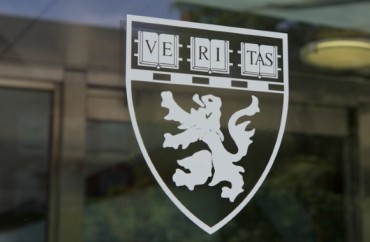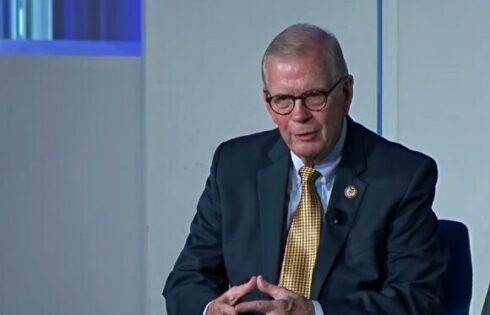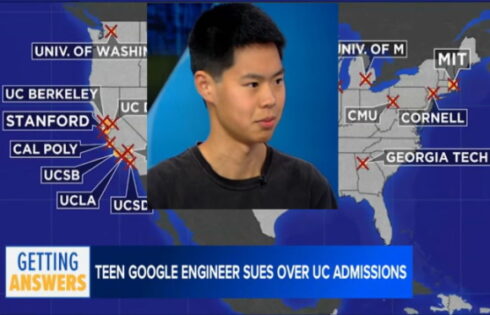
To sum up all that is broken in higher education in roughly 11,000 words is no easy feat, but the great thinkers at the National Association of Scholars have managed to accomplish it.
In a sweeping statement released this week, the membership organization of faculty that aims to support intellectual freedom in academia spelled out why campuses are in such disarray and offered counsel on how to return them to their glory days — before they were corrupted with ideology-over-education mentalities.
Today, colleges face widespread ridicule, with many average folks viewing them with a sort of inmates-running-the-asylum lens. They also face identity crises, and a troubling, close-to-bursting higher ed bubble looming above. What is to be done?
The National Association of Scholars’ document attempts to restore the contexts of academic and intellectual freedom, in other words remind administrators and professors — and universities in general — of their true roles in the public square.
“The public trust view of academic freedom is another way of saying that academic freedom doesn’t exist for its own good but to serve a larger purpose,” according to the statement, dubbed “The Architecture of Intellectual Freedom.”
“The purpose — the public good — is divisible into several parts: … preparing students for worthy careers, opening the doors of civilization, pursuing truth, and shaping students into good citizens,” it notes.
Today’s universities fail in many ways to accomplish these goals, and the document spells out how in the formal statement, bylined by association President Dr. Peter Wood. It’s the most extensive publication released on academic and intellectual freedom by the National Association of Scholars to date.
It’s the group’s long-meditated response to the Black Lives Matter protests and cry-bullies that have gripped public discourse on campuses, while also addressing feckless responses such trends have garnered from many college presidents and trustees.
“We felt the need for a framework that crisply lays out how intellectual freedom should work in relation to the other foundational principles of the university,” Ashley Thorne, executive director of the National Association of Scholars, said in an email to The College Fix.
One of many topics the statement addresses is students’ academic freedom.
It points out that while today the pushback to the left-liberal control of campuses is a demand for students’ First Amendment rights in the face of biased professors, safe spaces and microaggressions, the issue goes far deeper than that.
“For students, academic freedom is a combination of freedom from indoctrination and freedom to engage in disciplined inquiry, which includes the freedom to read, hear, and consider views that differ from those of their instructors,” it stated.
“… Indeed, the bias of faculty members is one of the greatest threats to students’ academic freedom because it is often invisible to the students themselves. Students may receive a partial account of a topic and mistake it as impartial; or they may be misled into accepting as authoritative what is only a glib dismissal of an opposing view.”
Therein lies a major problem.
It’s not enough that students can say whatever they want in the quad: Students’ academic freedom should not come second to professors’ academic freedom, Wood writes: “Students do indeed have a First Amendment right to speak out on controversial issues, but their academic freedom consists of something else: the freedom to pursue an education.”
And yet that freedom is not available to students in many ways due to today’s current campus climate.
“The freedom of the student to learn can be impinged upon by other students who party too loudly or too often; who mount disruptive protests in the library or the classroom; or who hijack class discussions to focus on some favored issue or perspective to the detriment of more balanced coverage of a topic,” the statement notes.
Campus leaders must have the fortitude to stand up to activist tyranny.
“Civility proceeds from strength, not weakness,” the statement points out. “For intellectual freedom to exist with a community, civility must be maintained by authority if and when necessary. Dissent can and should be tolerated but dissent that descends into incivility is unacceptable and must be met with sanctions.”
The statement also addresses the need for more intellectual diversity, but points out “the only secure path to intellectual diversity in the classroom is intellectual diversity in the faculty. And this is a condition seldom met in today’s university, where the actual spectrum of ideas present and available for debate is extremely limited.”
It also calls on professors and campus activists to allow students to make up their own minds instead of being told what and how to think, noting “as we hope not to have others impose their opinions on us, we should refrain from imposing ours on them.”
To that end, there are many challenges to be addressed.
“The idolization of power over truth … has roots in the Frankfurt School of Marxism and has become the favored view of many campus political activists,” the statement reads. But campus leaders must reject the urge to use power to subjugate academic and intellectual freedom and instead allow for the pursuit of truth.
The statement is published at a time when “some in higher education dismiss freedom as an illusion and extol other goals as more worthy: social justice, ‘safety,’ global citizenship, and group identity have emerged as ideals that should, in the arguments of their proponents, supplant the ideal of freedom,” it notes.
For the university to survive, it must return to its original principles.
“Universities are not places where anything can be said anywhere and at any time. They are places where the truth is pursued by disciplined means; where a hierarchy of knowledge prevails; and where intellectual authority is maintained,” Wood writes.
“A university must also embrace intellectual diversity; it must find ways to distinguish worthy from unworthy intellectual pursuits, and important from trivial topics; it must strike a balance between teaching matters of substance and teaching skills; it must establish for students and faculty alike some locus of authority for determining which matters must be taken as settled and which are open to examination—and must also make provision for shifting these categories.”
Like The College Fix on Facebook / Follow us on Twitter
IMAGE: ThePhotosite / Shutterstock.com






Please join the conversation about our stories on Facebook, Twitter, Instagram, Reddit, MeWe, Rumble, Gab, Minds and Gettr.